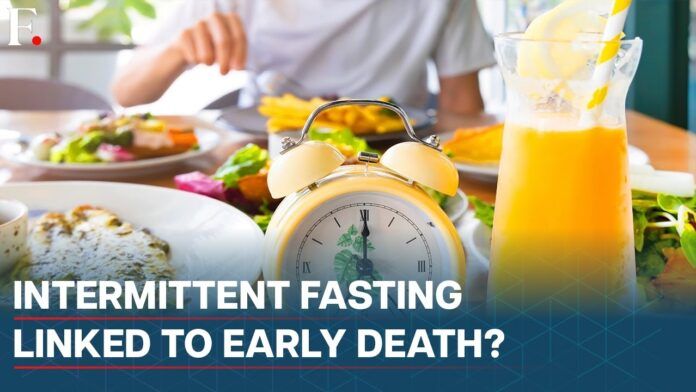Research challenges alleged health benefits promoted by celebrities and health gurus
A new study has cast doubt on the purported health benefits of intermittent fasting, a dietary trend endorsed by celebrities and health enthusiasts alike.
Intermittent fasting, popularized as the 16:8 plan, involves consuming all meals within an eight-hour window and fasting for the remaining 16 hours. However, research published by the American Heart Association challenges its safety, revealing a concerning association with cardiovascular mortality.
Led by Dr. Victor Zhong from the Shanghai Jiao Tong University School of Medicine, the study analyzed approximately 20,000 adults in the US who adhered to intermittent fasting, focusing on the 16:8 plan.
According to findings presented at the AHA’s Epidemiology and Prevention conference, individuals restricting their eating to an eight-hour window faced a staggering 91% increased risk of death from heart disease compared to those eating across 12 or 16 hours. Moreover, participants with pre-existing cardiovascular conditions who restricted eating to eight to 10 hours per day experienced a 66% higher risk of death from heart disease or stroke.
In contrast, individuals with cancer who extended their eating window to more than 16 hours demonstrated a reduced risk of death from the disease. However, time-restricted eating did not mitigate the overall risk of death from any cause.
Dr. Zhong expressed surprise at the findings, stating, “Restricting daily eating time to a short period, such as eight hours per day, has gained popularity…However, our research clearly shows that…a shorter eating duration was not associated with living longer.”
The study analyzed data from participants in the 2003-2018 National Health and Nutrition Examination Surveys, comparing it with the CDC’s National Death Index database. Despite its insights, researchers acknowledged limitations, including reliance on self-reported dietary information and failure to consider other health factors.
Dr. Christopher D. Gardner from Stanford University emphasized the need for a comprehensive analysis of nutrient quality and demographic characteristics across different eating schedules to better understand the study’s implications.
As intermittent fasting continues to trend in the wellness sphere, this study underscores the importance of cautious consideration and further research into its long-term health effects.
